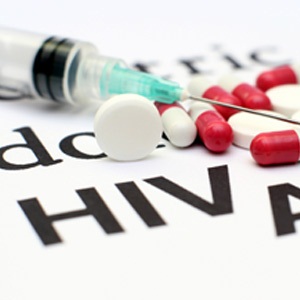
The approach mirrored that taken for a Mississippi baby, who has been off treatment for 21 months and still has no detectable virus in her system.
The latest research on the two young girls was presented at the annual Conference on Retroviruses and Opportunistic Infections (CROI) in Boston.
Early treatment essential
The newest case involves a Los Angeles baby was born to a mother infected with HIV and who had not been taking her medications, making her at high risk for transmission, said Yvonne Bryson, chief of paediatric infectious diseases at the David Geffen School of Medicine at the University of California, Los Angeles.
Audra Deveikis, a paediatric infectious disease specialist at Miller Children's Hospital Long Beach, where the baby was born, tested the infant and gave her high, treatment-level doses of antiretroviral drugs before even knowing if she was HIV-positive, Bryson told AFP.
"The way it works is you test and you treat before you know the results because it takes several days to get the results," explained Bryson, a consultant on the case.
Treatment started at four hours of age, even earlier than the Mississippi child. Eventually, the tests came back positive for HIV but by six days of age, the virus was undetectable.
"The remarkable thing about this particular baby is that the virus disappeared so quickly," said Bryson.
Not a 'cure' yet
The baby is still being treated with antiretroviral drugs, and researchers are cautious not to utter the world "cure" or even "remission" just yet.
Now aged 11 months, the child is doing well and continues to see doctors while under the care of a foster family.
She has "no detectable viral load, nothing since six days of age. That is the earliest ever," said Bryson.
Once she turns two, doctors may decide to stop suppressive therapy to see if she is in remission, or if the virus would rebound.
"The only way we would know if the baby is in remission is to stop therapy," explained Bryson.
Read: Mother-to-child HIV down
Also at the conference, Deborah Persaud of Johns Hopkins University presented the latest on the Mississippi baby, who was given ART at 31 hours of age.
Considered in remission
Now, the three-year-old is considered in remission from HIV, after drug treatment was stopped 21 months ago and no viral rebound has been observed.
Bryson said the Los Angeles team is optimistic that their baby will do just as well.
"The fact that it was a very fast reduction in the virus to undetectable levels makes us very hopeful that this baby might follow in the footsteps of the Mississippi which is still being followed," said Bryson.
"We are learning a lot now and it is exciting for the future."
There is no known cure for Aids, which has infected some 70 million people around the world and killed 35 million, according to the World Health Organization.
Read more:
Anti-HIV drugs halt transmission
Mother-to-child HIV transmission linked to gene change




 Publications
Publications
 Partners
Partners















